Jacob T. Marley by R. William Bennett. Shadow Mountain, 2011.
In this convincingly written pastiche of Charles Dickens’ classic novella A Christmas Carol, author R. William Bennett includes a Preface addressing his readers, whom he assumes are well acquainted with Dickens’ account of Scrooge’s visitations by three spirits on Christmas Eve, his repentance, and his chance to make amends and change his life. And why not? It is one of the most famous stories in the world, repeated, read, and watched on film by millions every year. But Bennett wants to know more. He wants us to join him in inquiring further into the backstory of A Christmas Carol, in life and beyond. For him, it all boils down to one fundamental concern: “What of old Jacob?”
Who was this man? Why was he so evil? Why did he in fact get to visit Scrooge and usher in the experience that changed first Ebenezer and then so many of our lives? Why did Scrooge get a final chance to change and not Jacob Marley?
Or did he?
Bennett’s novel offers answers to all these questions, and in the process considers the nature of redemption and forgiveness. Can Scrooge be saved, and yet Marley suffer and rattle his heavy chains eternally, as Dickens implies? Perhaps everything is not as it seems. An intriguing premise for a spinoff novel, but the success all depends on the quality of storytelling and control of language–Bennett rates highly on both counts.
The story is mapped out very well. First, it asks how did Marley become the man that he did. Unlike Scrooge, young Jacob Thelonius Marley is shown enjoying a happy childhood in a loving family. This makes Marley, the wizened old miser, the merciless business partner of Scrooge, even more inexplicable. The author turns to the reader again, confiding that “we search for a particular event, the germination of a seed that, watered by some kind of cupidity, would take root in the pure-hearted young Jacob and find its flower in deceitful old Marley.” He finds it in a particular incident in school when Marley’s pride and ambition are awakened by praise of his superiority in math and figures, without any tempering moral instruction. That is the seed. The flowering comes when young Marley disowns the good example of an illustrious forebear, Thelonius Marley, whose sole distinction was an act of generosity and self-sacrifice. Jacob allows cynicism and calculation to replace his former admiration and he drops his own middle name honoring this kind man, finally expunging even the initial T., along with the memory of goodness it represented. Is this really an explanation for Marley turning bad? Not exactly, because there is always a choice (that’s why this is a modern morality tale). The rest of the novel plays out with close examination of Marley’s–and Scrooge’s–choices and their consequences. The “Christmas magic” enters in when some of those choices lead to second chances.
Marley’s actions intersected with Scrooge’s life before they met because Marley was landlord to Scrooge’s sister Fan. They met on the street during her funeral procession. But neither man would know of this connection until much later. As they saw it, a chance meeting had introduced each to his perfect associate in profit-seeking. Each man strengthened the worst qualities in the other, and their fortunes grew as their moral character withered: “For twenty-five years, the two men grew more mean, more selfish, and more aligned in their purpose.”
Were Scrooge and Marley friends? Marley did not think so, as he lay on his deathbed, and mutely received the cold, “perfunctory” visits from Scrooge each day. He could feel Scrooge’s impatience for him to depart so that Scrooge could get back to his own business. And yet–death is a crossroads, and no one can entirely predict how he might feel approaching the boundary that separates death from life. Did Marley’s life pass before him in the long hours between Scrooge’s visits? Indeed. Marley saw the spirits of his wronged clients of a lifetime; he realized he had chosen to show them no mercy–it wasn’t inevitable. Perhaps even now he could muster the strength to say a few words to Scrooge. I won’t reveal those last words, but they have momentous consequences for the spirit of Jacob Marley.
Now the novel has arrived at the point where Dickens takes up the story. As you might expect, Bennett will retell the crucial events from Marley’s perspective this time. Is the visit of Marley’s wailing, chain-rattling Ghost exactly what it seems to be? Perhaps there could be more to the story. This time, Marley’s ghost will remain throughout, as an unseen witness to all that Scrooge sees when the three Ghosts of Christmas come to show him the hard truths of his past, present, and future and thereby awaken his remorse. Marley can’t help but consider his own role in many of these events. But will it be enough? This book imagines some surprising twists that will affect the eternal fates of both Marley and Scrooge.
Like A Christmas Carol, Jacob T. Marley is a tale that examines the nature of redemption, forgiveness, and atonement, but Bennett’s book is more theological in its speculations and more overtly Christian in its symbolism than Dickens’ work. As pointed out recently by Michele Jacobsen of A Reader’s Respite (citing Les Standiford, who wrote The Man Who Invented Christmas), the appearance of A Christmas Carol coincided with the beginnings of a shift toward a more secular society, one in which man had to depend on himself as much as on his Creator. Scrooge’s path of redemption could be seen as consistent with that, although it clearly did not deny a supernatural world. As she puts it, “God was not being rejected, but man’s control over his destiny was gaining ground.” Scrooge’s choice one Christmas Eve has shaped our modern idea of Christmas. Bennett’s book could be seen as an alternative interpretation of Scrooge’s choice and his salvation from that fearful afterlife so memorably presented to him by Jacob Marley’s ghost.
Related links:
- A Very Dickens Christmas by Michele of A Reader’s Respite [a guest post at I’m Lost in Books].
- Ghosts of Scrooges Past: Revisiting “A Christmas Carol”
*********************************







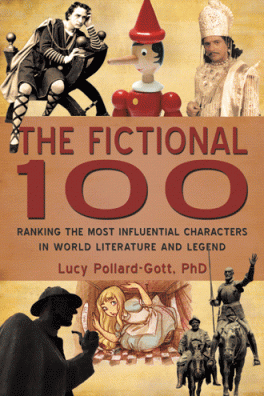


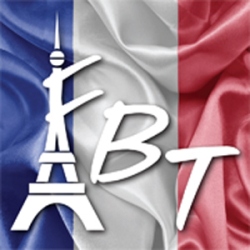
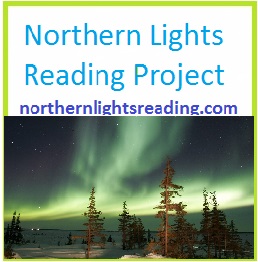









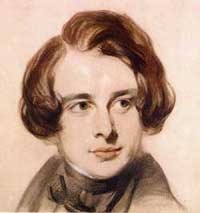
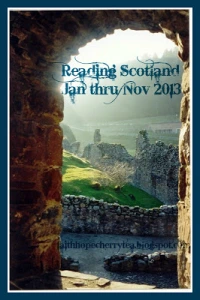
Recent Comments